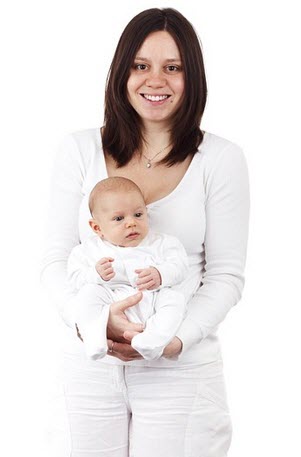Contents
Postpartum Psychosis is considered to be the most severe form of postpartum depression, or mood disorders. This psychosis is the rarest form of postpartum psychiatric illnesses. Statistics show that only two percent of women suffer from Postpartum Psychosis.
The onset of symptoms usually occurs within three days after childbirth; the symptoms are dramatic and almost always severe in nature. Postpartum Psychosis is much like bipolar disorder; which consists of rapid mood cycles (feelings of extreme highs, and lows in mood elevation), intense anger, and disruptive speech patterns.
Signs and symptoms include:
 Insomnia
Insomnia- Irritability, (intense anger accompanied with mood swings)
- Restlessness or inability to sit, or pay attention for any length of time
- Rapid shifts in mood, or manic behaviors
- Disorientation, confusion, and erratic disorganized behavior
- Delusional beliefs
- Hallucinations
- Auditory Hallucinations
- Suicidal thoughts or attempts of suicide
Doctors believe that this form of postpartum mental illness has the most harmful effects. Suffering from this mood disorder can be very scary for a new mother, and her family; mainly because when psychosis develops a person completely losses touch with reality.
Episodes usually start with: an inability to sleep, feelings of restlessness, and extreme bouts of anger. Rapid shifts in mood start to develop; ranging from extreme highs to lows, usually referred to as manic behavior. Auditory Hallucinations occur, and present in the form of voices telling the new mother to harm the baby or herself.
A new mother might also exhibit disorientation; or an extreme confused state inhibiting her to take care of herself, or the baby. Most women who suffer from Postpartum Psychosis have suicidal thoughts, or attempts, and are unaware of the extreme danger they pose to themselves, and the infant. Women who suffer from a previous mental illness are at a much higher risk to develop this psychiatric disorder.
Risk Factors:
- Family history of mental illness or psychosis
- Women who suffer from Bipolar Disorder
- First time pregnancies
- History of schizophrenia
- Family history of Postpartum Psychosis
- Discontinuing of psychiatric medications for pregnancy
- History of Postpartum Psychosis in previous pregnancies
It is unknown what can cause the onset of this psychosis, but some doctors theorize it could be due to a change in hormone levels after childbirth. All women have these changes in hormones after delivery, however some seem to be more sensitive to the mental effects of hormonal changes such as; estrogen levels, progesterone, and thyroid hormones.
Other health conditions or factors that can bring on this psychosis in mothers are: sleep deprivation, cultural influences, genetics, biological factors, and environmental factors. If you experience these extreme mood changes it is vital to seek medical attention immediately to get a psychiatric diagnosis.
How does a doctor determine a psychiatric diagnosis of Postpartum Psychosis?
A medical professional will start by asking you basic symptoms, and the time frame you have been suffering from them. Usually, a psychiatrist will ask about your family medical mental history in order to determine hereditary factors of psychosis. The following are some important family history mental mood disorders, or addictive behaviors to be aware of:
- Depression
- Anxiety
- Bipolar Disorder
- Suicidal thoughts or tendencies
- Substance abuse (drugs and alcohol)
- Obsessive Compulsive Disorder
When speaking with your doctor it is very important to be as open and honest as possible for a clear diagnosis. Your doctor will first try and rule out the common causes for rapid behavior changes, such as: thyroid problems or postpartum infections. Blood tests can be performed to determine if the onset of symptoms are due to infection by checking your white blood cell count. It is likely they will ask you to fill out a detailed form of your past medical history.
